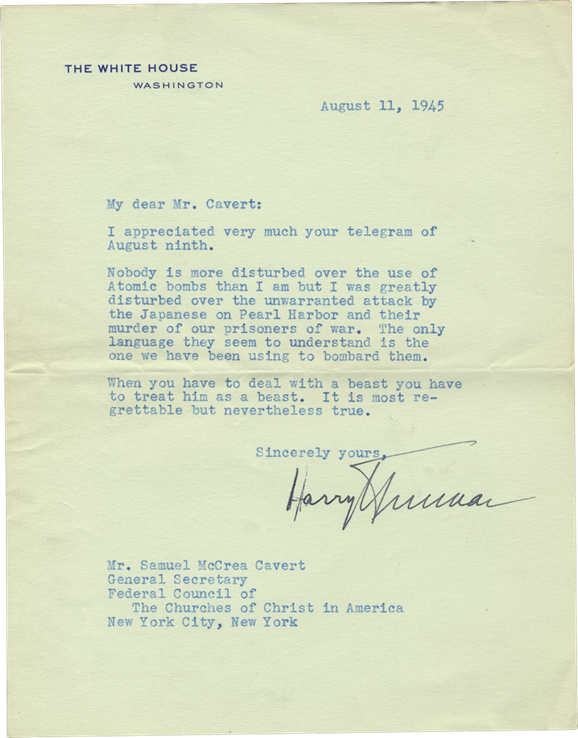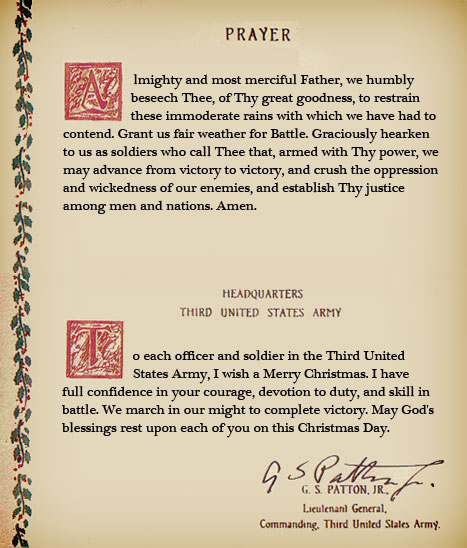On this day in 1945, by order of President Harry S. Truman, the American bomber Enola Gay drops a five-ton atomic bomb on Hiroshima. The aim was to bring the war to an abrupt end, and to avoid an invasion of Japan and the subsequent likelihood of massive American casualties.
Then, on August 9th, the United States drops a second atom bomb, this time on Nagasaki, at last resulting in Japan’s unconditional surrender. A third was likely forthcoming, if necessary.
Also on August 9th, President Truman gave a “Radio Report to the American People on the Potsdam Conference.” After seeing the devastation in Europe firsthand, he remarked:
“How glad I am to be home again! And how grateful to Almighty God that this land of ours has been spared!
He went on:
“I realize the tragic significance of the atomic bomb.
Its production and its use were not lightly undertaken by this Government. But we knew that our enemies were on the search for it. We know now how close they were to finding it. And we knew the disaster which would come to this Nation, and to all peace-loving nations, to all civilization, if they had found it first.
That is why we felt compelled to undertake the long and uncertain and costly labor of discovery and production.”
…
“An Awful Responsibility”
“Having found the bomb we have used it. We have used it against those who attacked us without warning at Pearl Harbor, against those who have starved and beaten and executed American prisoners of war, against those who have abandoned all pretense of obeying international laws of warfare. We have used it in order to shorten the agony of war, in order to save the lives of thousands and thousands of young Americans.”
…
“It is an awful responsibility which has come to us.
We thank God that it has come to us, instead of to our enemies; and we pray that He may guide us to use it in His ways and for His purposes.”
* * *
The United States is the only nation to use atomic weaponry in war. While it ended World War II, it may have precipitated the Cold War. Consequently, by 1949, the Soviets had also developed the atomic bomb.
Finally, see The White House memo below from President Harry S. Truman to the Federal Council of The Churches of Christ in America for more perspective:


